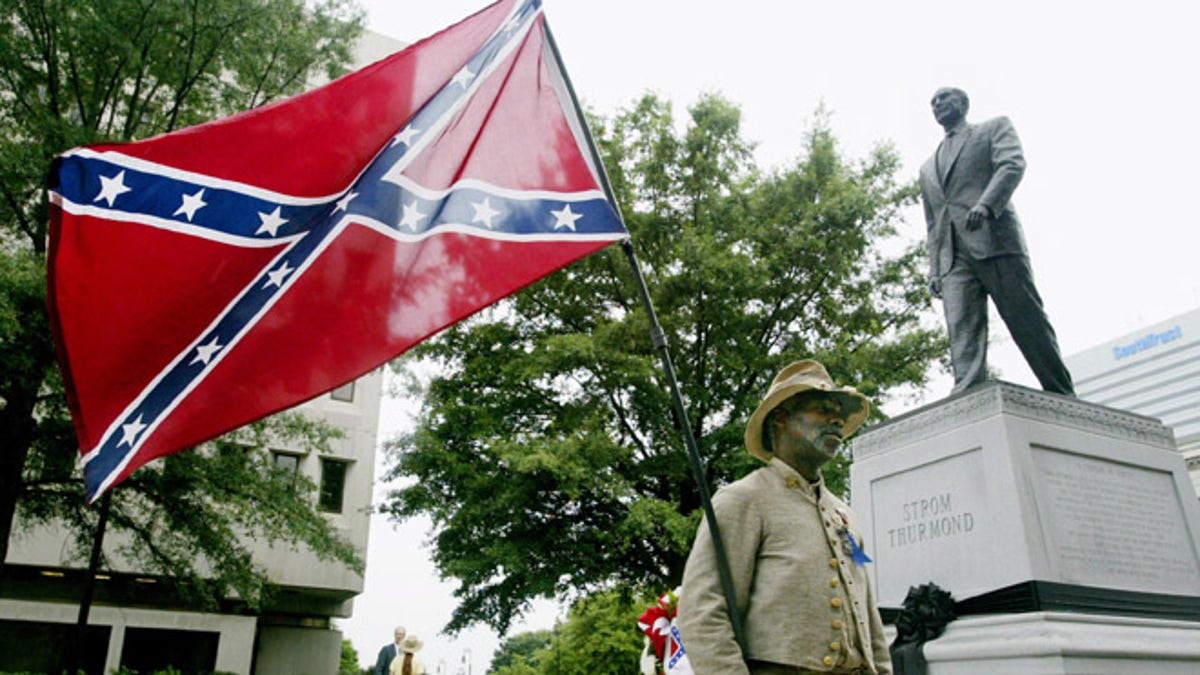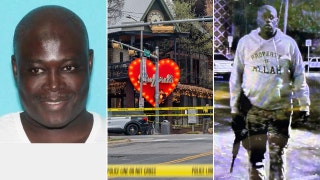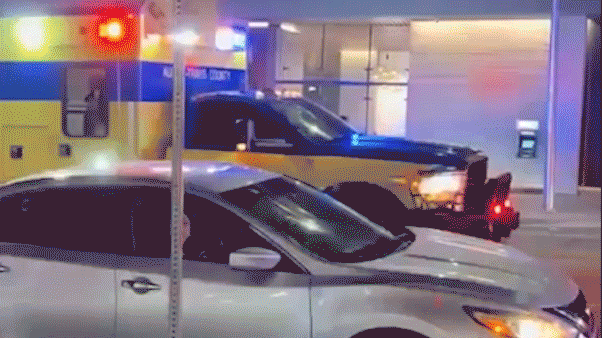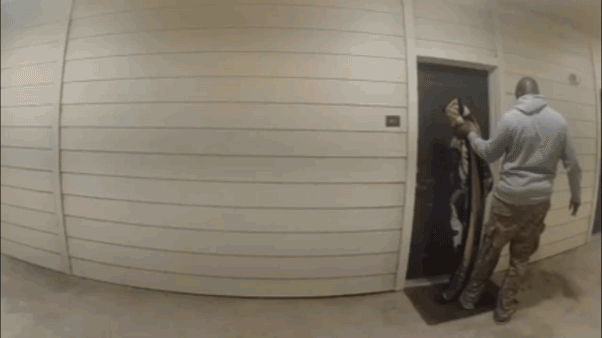
July 1, 2003: Wearing a Confederate uniform and the Stars and Bars of theConfederacy, H.K. Edgerton of Ashville, North Carolina stands beside astatue of former Sen. Strom Thurmond outside the state house in Columbia, South Carolina. (Reuters)
A conceptual-art project that includes plans to burn and bury Confederate flags in 13 mostly Southern states on Memorial Day has drawn the ire of groups such as the Sons of Confederate Veterans that consider the events disrespectful and divisive.
The planned flag burnings and burials also raised concern that such a public and symbolic act would fall short of the artist’s stated goal to simply retire the flag as a “symbol of terror” and would instead serve to aggravate tensions.
The controversy is the latest in a long string of flare-ups over the flag and highlights how fraught a symbol it remains 150 years after the Civil War ended. While some denounce the flag as an emblem of racism and oppression, others revere it as a representation of the South’s cultural heritage.
John Sims, a 47-year-old conceptual artist in Sarasota, Fla., who is organizing the Memorial Day events, said he hoped to prod people “to reflect upon and critique the complex nature of the Confederate flag as a lasting symbol of terror.” He said he planned to stage funerals for the flag in the 11 states that formed the Confederacy, along with Kentucky and Missouri.
The events, in cities including Nashville, New Orleans and Clarkston, Ga., will involve poetry readings and musical performances as well.
Police department spokespersons in Orlando and Nashville said they weren’t aware of any security concerns tied to the events.
Some groups that cherish the Confederate flag reacted angrily to news of Mr. Sims’s project. “This is not only terribly offensive, but astonishingly idiotic,” said Ben Jones, a former Democratic congressman from Georgia and spokesman for the Sons of Confederate Veterans. “This sort of thing merely inflames old divisions.” Mr. Jones said he had a message for Mr. Sims: “For every flag he burns and buries, we will put 10 more up.”
Clashes over the Confederate flag are less intense now than they were in the 1980s and 1990s, said Lesley Gordon, a history professor at the University of Akron and editor of the journal “Civil War History.” While she understands Mr. Sims’s desire to combat what he considers a symbol of racism, “burning a flag has powerful symbolism,” she said. “I don’t see that in any way bringing people together and creating opportunities to learn.”









































